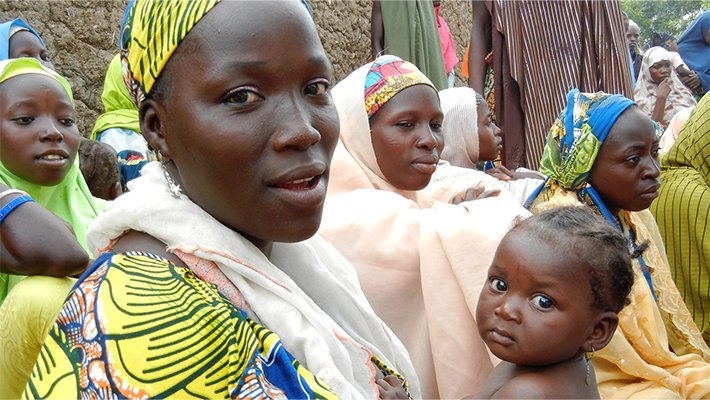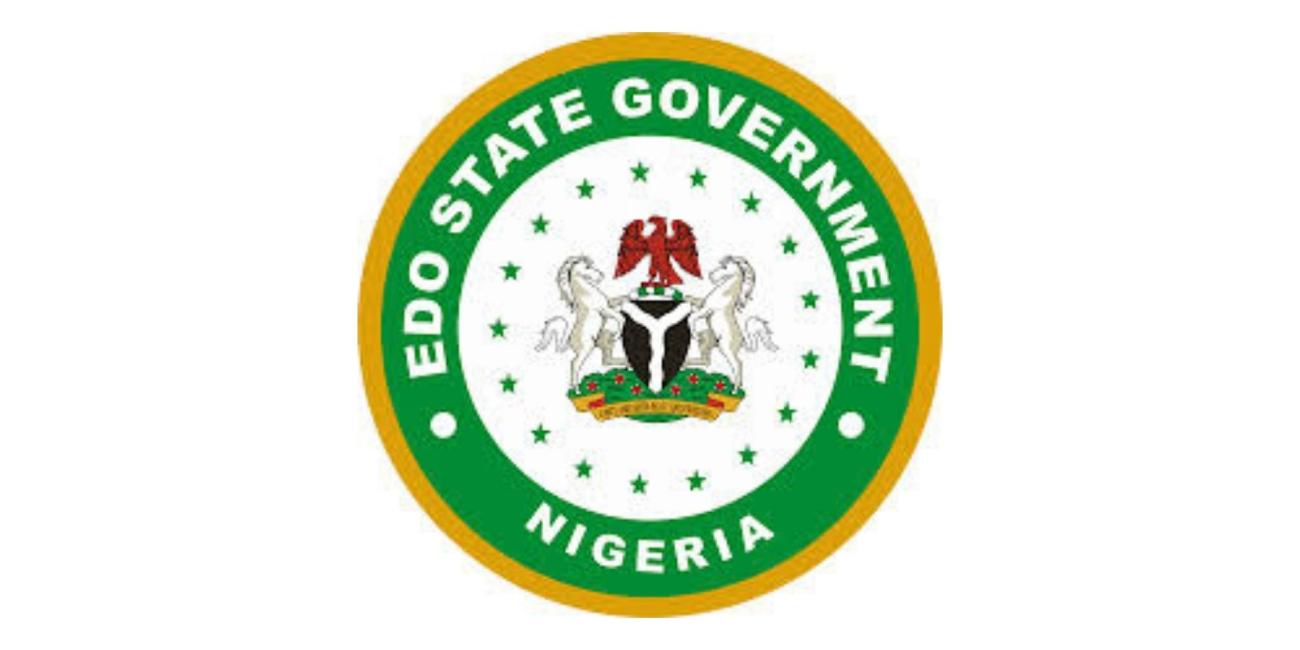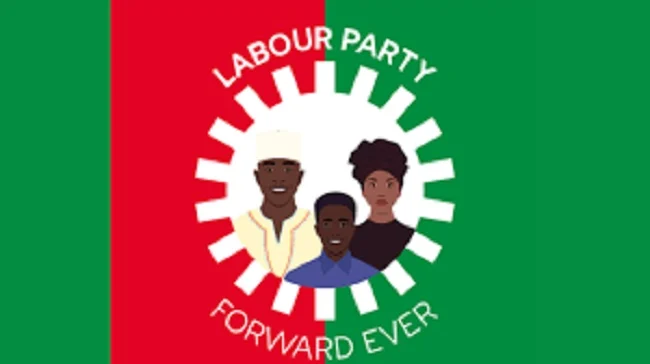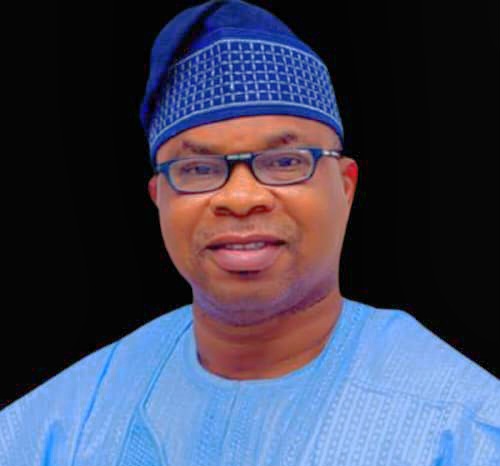Opinion
How To End The Deadly War On Nigerian Women And Children

A country rich in oil and gas. Rich in resources. But bankrupt in everything else, especially leadership.
Childbirth is a death sentence in our country. It shouldn’t be. But it is. Our country loses a woman every seven minutes. That’s not a statistic. That is not just a scream in the dark, it is a cry searing the blinding daylight of a country that has grown numb to both the living and the dying. A country where indifference is policy, and silence is the only answer to suffering. A final breath. A mother dying while giving life. The BBC reports that our country is the world’s worst place to beget life. One woman dies every seven minutes. That’s 75,000 maternal deaths in one year. That’s 29% of all maternal deaths worldwide. Almost one in every three. That’s not a crisis. That’s a collapse. That number should shame our country and us as citizens. It doesn’t.
This tells a story. A tragic, brutal, relentless story. Of women bleeding to death in clinics. On beds without bedsheets. With midwives who have no gloves. Of babies born into silence. Of widowers cradling newborns. Poor fathers. Of children growing up without mothers. Of families shattered by the simple biological act of childbirth.
But childbirth here isn’t straightforward. It’s war. It’s women walking kilometres to underfunded hospitals. It’s labour rooms without light. Clinics without water. It’s rusted scissors. Torn gloves. Nurses working with torchlights. And stillbirths that go uncounted. Here? Emergency care is a complete farce. Blood banks? Dry. Anaesthesia? Non-existent. Bandages to hold cannulas in place? Paper stickers. Ambulances?
Pregnant women in labour hop on a keke ride and on a prayer.
This is our country – the land of our birth.
A country rich in oil and gas. Rich in resources. But bankrupt in everything else, especially leadership.
The women who die are poor. They are urban and rural. They are the forgotten ones. They are invisible. Their deaths don’t make much of the daily news. Their stories don’t make policy. They die in silence. Buried without outrage.
But, it doesn’t end with mothers.
Our children die too. Quietly. Slowly. Around and about. Development Reporting, a specialist media outfit, said it clearly. Our children are failed by the system. Unvaccinated. Malnourished. Out of school. Sick. Abandoned. They are growing up in hunger. In pain. They live without food. Without teachers. Without nurses. Without any chance. They have been left behind. To die. One in ten of our children never reaches their fifth birthday. Most deaths are preventable. Malaria. Pneumonia. Diarrhoea. Hunger. Simple diseases that kill fast because our country’s healthcare system habitually kills.
One in three children is stunted. That means their brains and bodies won’t grow as they should. That means their futures are already stolen. Malnourished children can’t learn. They can’t compete. They can’t lead. Our country has failed them. Repeatedly. Brutally. Little wonder the late, iconic South African-born reggae legend, Lucky Dube, lamented the moral decay of Africa’s governing class. “They won’t build no schools anymore,” he sang, “all they’ll build will be prison, prison.” His words echo like prophecy across our country’s broken landscape. If he had trained his mind on our country’s governing elite, he might well have added: they don’t build hospitals anymore; all they construct are flyovers to nowhere. Perhaps, to Samarkand, where fantasy lives and the sick are not their burden.
And, yet, our country pretends that all is well and good. While 18 million children are out of school, it pretends. While millions live in slums, drink dirty water, and battle diseases, it pretends. While clinics run out of vaccines, it pretends. While mothers weep over graves, it turns its eyes in the direction of Afghanistan. The governing elite are the worst culprits. Does the holy book not say, “Blessed are those who mourn, for they shall be comforted”? But these ones will not mourn. They do not weep for the dead. They do not grieve with the bereaved. Their hearts are sealed. Their eyes are dry. They soar, detached, above the suffering of ordinary citizens like Achebe’s Eneke the bird, who learned to fly without perching because men had learned to shoot without missing. Our rulers now fly too, sky-high, far above the dust and death they leave behind.
The president. His wife. The vice president. They spent N23 billion on foreign travel last year. That’s not a typo. N23 billion. For comfort. For luxury. For medical treatment. Paris for medical check-ups; but, masked as working holidays. Dubai for toothaches. Germany for routine tests. London for rest. While, back home, women are stitched without anaesthesia. Children die from coughs. While hospitals turn from Buhari’s mere consulting clinics to morgues. Here’s the truth: they flee the country they ruined. They simply cop out to countries that others built.
Where they don’t cop out, they hide inside the world of opulence they built for themselves from the stolen commonwealth. They don’t feel citizens’ pains. They don’t know what it means to hear a child convulse and die because there’s no oxygen. They don’t know what it feels like to hold a woman’s hand while she dies from a ruptured womb. They don’t bury children. They bury money. In Swiss accounts. Offshore firms. Dollar vaults. The Panama Papers reveal the truth. While our own currency can’t buy Panadol.
Our corrupt governing elite have eaten everything. Ours is now a country of locusts. Budgets are padded. Health budgets are looted. Drugs are stolen. Equipment is resold. Nurses and doctors, left unpaid and unappreciated, flee our country’s shores in despair, seeking dignity in foreign lands. In a moment that captured the callous indifference of our governing elite, former Minister of Labour, Chris Ngige, shamelessly declared that the exodus of doctors was of little consequence because, according to him, our country “has more than enough medical personnel… if you have surplus, you export”. It was a boast swaddled in ignorance, and beneath it lay the tragic arithmetic of a ruined country.
The World Health Organisation’s data pierces through Ngige’s fiction like light through the dark: as far back as 2013, our country had only 3.8 doctors for every 10,000 citizens; a ratio far below the WHO’s recommended ratio of one doctor to 600 patients. Twelve years on, the ratio hasn’t changed. This is not surplus; it is scarcity masquerading as strength. It is the cruel irony of a ruined country bleeding expertise while its governing elite speak in the hollow cadences of denial.
Our country has signed all manner of treaties.
The Sustainable Development Goals. The UN conventions. The AU declarations. Our country pledges. Our country makes promises. But nothing is fulfilled. Nothing reaches the dying woman in the cities and villages. Nothing saves the baby in the overcrowded wards of urban hospitals. Data is manipulated. Numbers are cooked. Reports are buried. Truth is hidden. But graves don’t lie.
Our mothers are dying. And no one is asking why they are dying. Even if someone is asking, no one is answering. Our governing elite are pursuing policies of indifference and neglect by design. Failure by choice. It is deliberate because they aren’t the victims of their own failure. They are protected from it. They are immune. They are medical tourists. Their wives won’t deliver in local clinics. Their babies won’t sleep on bare floors. Their lives are insured. Citizens’ lives are not. And so, our country stays broken. Because it works for them. Because there are no consequences for enthroning failure. So, they go on commissioning 30 kilometres highway and bus stops, and unveiling white elephant projects. Hosting summits. Garlanding foreign visitors.
Taking photos. Saying prayers. Meanwhile, more women keep dying. Children keep vanishing into the abyss. Citizens are told to be patient. To renew hope. But hope is not a hospital. Faith is not healthcare. Prayer doesn’t fix a torn placenta. Or stop post-partum bleeding. Or treat jaundice. Only investment. Only real governance. Only the political will of a responsible governing elite who know what to do: train midwives. Equip hospitals. Provide ambulances. Fund primary healthcare. Pay doctors and nurses. Build systems. Enforce accountability.
These are not puzzles wrapped in enigma; they are the fundamental functions of a competent state. Rwanda has done it, with clarity of purpose and political will. Ghana has made earnest strides. Even Sierra Leone, scarred by war and poverty, is learning to rise. But here in our republic, our rulers talk. They convene conferences. They inaugurate committees with fanfare. They rename hospitals as though renaming heals the sick. They switch uniforms as if new fabrics could staunch the bleeding. But they do not save lives. They perform the ritual of governance without its substance.
And the cost?
It is written in the silence of empty cradles and the wails of orphaned children. Seventy-five thousand women lost in a single year, not to the Boko Haram war; but to preventable complications. Buried without headlines. Yet, our governing elite have not declared it a war. There are no national mourning days. No flags lowered. No outrage. Just the quiet erasure of women, whose only crime was to give life in a country that does not value life. But it is war. On the poor. On the voiceless. On mothers. On children.
Every maternal death is a failure of leadership. Every child’s grave is a scandal. Every hospital without drugs is a crime scene. Citizens must speak louder. They must make their votes count. A country that abandons its women and children abandons its soul. This is not fate. This is not nature at work. These are premeditated murders. Matricide enabled. Infanticide engineered. Deaths orchestrated and sustained by our governing elite.
Silent though it is, our country is waging a war against women and children, and the generals of that war, the very men and women entrusted to protect the citizens, are the ones who pry open wounds, mother after mother, and children upon their first cries. Happily, history offers the lamp to courageous citizens who think of the Parisians who stormed the Bastille with unyielding revolutionary will and seek to enact their own history, not with bloodied pikes, but with their ballots, voices, and unyielding civic will.
That chapter in history will not be written by fate, but by paragraphs that citizens shall compose by choice.
Beware.
May our dead find peace.
Gazettengr.com
Opinion
Edo State To Spend N1billion On Armoured Car For Speaker, N4.6billion On Vehicles For Lawmakers

The budget also reveals that N4.6 billion is planned for vehicles for the 25 members of the State House of Assembly.
Reporters’ review of the Edo State approved budget for 2026 shows that N1billion has been allocated to purchase an armoured vehicle for the Speaker of the State House of Assembly.
The budget also reveals that N4.6 billion is planned for vehicles for the 25 members of the State House of Assembly.
Also, N50million is planned for the purchase of refrigerators and other equipment for four directors. The House of Assembly Commission also plans to spend 200 million naira on roof and window replacement for its office building.
Earlier, a civic accountability group, MonITng, raised concerns over the execution of a multi-million-naira education project in Edo State, citing poor quality, procurement irregularities, and a recurring pattern of questionable contract awards.
“A project titled ‘Building of Blocks of Classrooms at Ojah Comprehensive High School, Akoko LGA, Edo State’ with project code ZIP20240448, valued at ₦222,000,000.00, and awarded under the Federal Polytechnic Auchi, Federal Ministry of Education, has raised serious concerns about the quality of execution, contract pricing, and procurement integrity.”
According to MonITng, its team tracked and inspected the project site. “Our team tracked and visited the project site and confirmed that although the classrooms were completed, they were poorly constructed.”
The group further noted: “The structure lacks basic finishing elements such as landscaping, proper drainage, and standard finishing works, all of which should have been included and adequately executed, given the huge sum budgeted for the project.”
It added that “the poor quality of work raises questions about project supervision, contract oversight, and how the allocated funds were spent.”
MonITng also linked the project to a contractor allegedly tied to multiple controversial contracts. “Even more troubling is the pattern we uncovered. The project was executed by Sam Sedi Nig. LTD, a company that has consistently received major contracts facilitated by Senator Adams Oshiomhole.”
The group claimed that “this same contractor handled the abandoned ERGP20245252 project, Construction of Warake to Ivbiaro Road in Owan East LGA, valued at ₦200,000,000.00, which remains incomplete despite significant disbursements.”
“Additionally, the same company implemented a controversial agricultural empowerment programme in Etsako communities, also facilitated by Senator Oshiomhole.”
MonITng alleged that “the recurring involvement of this contractor in multiple projects, combined with substandard delivery and abandoned works, suggests a pattern of procurement manipulation, inflated contracts, and possible diversion of public resources.”
It added that “the situation reflects how public projects, although completed on paper, often fail to deliver a meaningful impact due to corruption, poor supervision, and a lack of accountability.”
Opinion
APC E-registration Plot To Manipulate 2027 Polls – Ogun LP

The Ogun State chapter of the Labour Party has accused the All Progressives Congress of using its ongoing electronic membership registration to allegedly manipulate figures ahead of the 2027 general elections.
In a statement issued on Wednesday, the state chairman of the Labour Party, Chief Oluwabukola Soyoye, claimed that the APC’s e-registration exercise was designed to digitally inflate its membership strength and project a false image of popularity in the state.
Soyoye alleged that the ruling party had resorted to electronic registration because it could no longer mobilise people openly, insisting that the administration of Governor Dapo Abiodun had suffered widespread rejection due to what he described as underperformance.
According to him, the APC’s e-registration, presented as a routine membership drive, was in reality “a political referendum that exposes the deep rejection of Governor Dapo Abiodun and his black-market style of governance by the people of Ogun State.
“The people of Ogun are now wiser. They have deliberately refused to participate in any open, physical APC registration because they know the ruling party has failed them,” Soyoye said.
“That is why the APC has resorted to this so-called electronic registration — a system that allows figures to be fabricated behind closed doors without the presence of real members.”
The LP further alleged that the electronic platform could be used to manipulate membership data, inflate figures and create a misleading narrative of political dominance ahead of 2027
“What we are witnessing is not a genuine political exercise but a fraudulent digital operation designed to manufacture legitimacy for a government that has lost the confidence of the people,” Soyoye added.
Opinion
Let These Campaigns Of Calumny Against AMBO Stop Forthwith

By Kola Odepeju
“Calumny Is Only The Noise Of Madmen” –Diogenes
As Osun state gubernatorial election draws nearer, we’re now at the dawn of the campaigns for the coming election and so as characteristic of Nigeria’s democracy, wrong accusations, blackmails, character assassinations and all manner of negative campaigns aimed at demarketing the most popular candidate with the highest chances of coasting home to victory in a major election of this nature, must surface. And so in our own dear Osun state here this ugly trend has started surfacing. The mudslinging that has started from Governor Ademola Adeleke’s Accord Party’s camp against the APC gubernatorial candidate, Asiwaju Munirudeen Bola Oyebamiji AMBO is ‘normal’ and expected because with the massive support for AMBO across the nook and cranny of the state, it’s crystal clear that he’s the candidate to beat.
As mentioned above, a candidate to beat in any major election is bound to face vilifications by his opponents who see him as a threat and a stumbling block against the success of their own ambitions. Therefore given the nature of our politics in this part of the world, the negative campaigns that have started against AMBO are no surprise. We witnessed the same thing against the incumbent president, Asiwaju Bola Tinubu during the 2023 electioneering campaigns for the office of the country’s president. But against all odds, Asiwaju Tinubu emerged victorious. So as Asiwaju Tinubu emerged victorious in 2023, l have that strong conviction that our own Asiwaju Bola Oyebamiji will also become victorious in the coming August gubernatorial election in the state irrespective of whatever negative campaigns that may come up against him. This is because the AMBO governorship project is divinely ordained.
Amongst other attacks that are still likely to come up against him as we face the election and as the election faces us, we have heard from those who are afraid of losing power that AMBO is the architect of half salaries in Osun (as if he was the governor in that era). We have also heard from them that he’s not youth-friendly. The spokesperson to governor Adeleke, Malam Olawale Rasheed also amplified these two negative points in his latest article aimed at demarketing AMBO. Like I mentioned, the negative campaigns have just started. We are still going to hear more. I wonder why people cannot engage in issues-based campaigns instead of vilifying candidates.
Ambo has told Osun youths the program he has for them. He has promised to take care of them. And as a God-fearing and honest leader who keeps to his words, l believe he will not renege on his promise for the youths and also his promises for Osun people generally. So let those who revel in vilifying a credible candidate like AMBO tell Osun youths the programs they have for them rather than calumniating a visionary and capable leader who has what it takes to deliver the goods. Of course AMBO – being a focused leader – needs not to bother himself about the negative campaigns being circulated against him by his political detractors because William Shakespeare had for long told us that “*Be thou as chaste as ice, and as pure as snow, thou shall not escape calumny*”. And George Washington also mentioned it that “*Silence is the best answer to false accusations*”.
Finally, the Yorubas in their words do say that “maligning the honey doesn’t reduce its sweetness”. No matter the level of negative campaigns against the APC gubernatorial candidate towards the election, it won’t reduce the love the Osun people have for him while it won’t deter them from casting their votes for him in the upcoming gubernatorial election in the state. He will surely come out victorious by the special Grace of God Almighty 🙏. For, Vox populi vox dei. AMBO should continue on the path of issues-based campaigns and close his eyes against malignant talks by those who are already on their way out of power.
● Odepeju, newspaper columnist and political activist, writes from Iragbiji, Osun state.
-

 Politics2 days ago
Politics2 days agoAssembly Confirms Popular Redeemed Pastor As Deputy Governor
-

 Foreign2 days ago
Foreign2 days agoCabinet Reshuffle: President Sacks Finance Minister
-

 Business2 days ago
Business2 days agoJUST IN: 13 Banks May Shut Down In March As CBN Confirms 20 Safe For Recapitalisation Deadline
-

 Politics9 hours ago
Politics9 hours agoBREAKING: “Serial Disrespect” Sparks Drama As Senate Order Arrest Of Tinubu’s Appointee
-

 Politics10 hours ago
Politics10 hours agoOpposition Leaders Urge N’Assembly To Begin Fresh Electoral Act Amendment
-

 Opinion9 hours ago
Opinion9 hours agoEdo State To Spend N1billion On Armoured Car For Speaker, N4.6billion On Vehicles For Lawmakers




